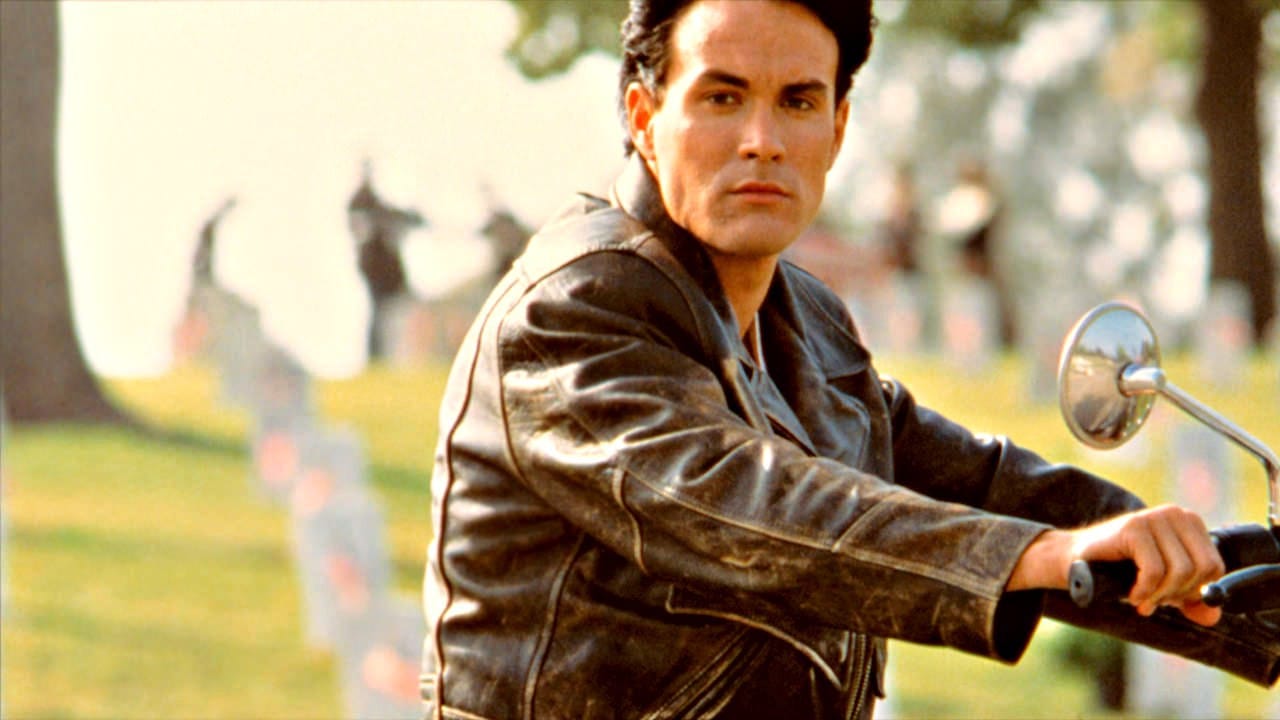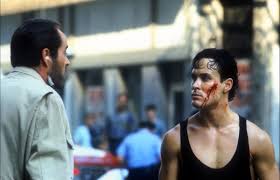It is difficult not to feel the perpetual sting of loss when looking back on the shortened life and career of Brandon Lee. Lost to us at the mere age of 28 in 1993, indeed at the cusp of his ascendancy, Brandon fell victim to a fatal gun-prop error that precipitated his accidental on-set shooting death during the filming of the "The Crow".
Ever the trenchant gothic mood-piece, Brandon’s turn as Eric Draven is unforgettable for many reasons, not least of which is the blend of sentimentality, rage, and longing that constitute his expression of that tortured character.
With the impact of that role on the 90’s cinematic consciousness, it seems fitting to honor Brandon as an important figure in the spectrum of Asian American representation in popular media (his family lineage aside), which would still take decades to breach beyond genre and stereotype. Eric Draven offered him the chance to shatter some of those very stereotypes from within the genre.
Some Just Have It
While The Crow remains Brandon’s most enduring screen legacy, his turn as Jake Lo in Dwight H. Little’s far too underrated Rapid Fire is no less shimmering with his talent, no less a breaking of the action star mold, and is no less a signpost of his brimming potential.
Brandon’s more natural, thoughtful, perhaps even sensitive “hero” would be much more at home in the present-day action genre. He had a spark of James Dean in that he felt more spontaneous, instinctive and cerebral than anyone around him. One might say that he was prescient of the tides to come, tides that would insist on more complexity and humanity between brawls.

Source: cinapse.co
Legacy of Rage (1986), Laser Mission (1989), Showdown in Little Tokyo (1991), Rapid Fire (1992), and The Crow (1993) constitute the essential breadth of Brandon’s abbreviated film career. It also extended to a handful of appearances on TV productions, notably the pilot of the first attempted iteration of Kung Fu: The Next Generation, which was not picked up. Evident from the outset, however, is Brandon Lee’s natural charisma and ease in front of the camera.
His cool manner, almost absent of ego, would flourish in each subsequent feature on a steadily rising profile aimed at top billing. While the films themselves were often scathed or dismissed by critics, Brandon’s performances alone were held up as their respective virtues.
Brandon Takes Center Stage
Jake Lo (Lee) is a Los Angeles art student with a complicated past; his father was a leading figure in mainland China's pro-democracy movement. Witnessing his father's death at the 1989 Tiananmen Square Massacre, Jake did his utmost to distance himself from the subsequent political activism he saw emerging in the Chinese American youth at University.
Despite his stoicism, but as a happenstance witness to a mob hit, he is unwittingly swept up in a conflict between declining mafia drug distributor Antonio Serrano (Nick Mancuso) and his ambitious overseas heroin manufacturer Tau (Tzi Ma), who also happens to be the more dubious patron for the local student activist chapter vying for Jake's participation.
Even if it stopped there, Rapid Fire already had all the architecture of a classic setup, but Dwight H. Little (Marked For Death) aims for something more contextually rich.
He folds in layers of characterization and inner conflict, gives us the grit of Chicago streets, and in doing so creates a compelling landscape of allegiances and double crosses set in a world we can believe.
Hunted on all sides, including a seedy FBI entanglement, Jake is rescued/recruited by rough-around-the-edges police lieutenant Mace Ryan (the late Powers Boothe in a career performance) and his partner Kate Hodge (Karla Withers) to help them end the Serrano/Tau drug ring and close out a ten-year investigation.
The Players
Mace is a hard ass with a heart of gold who can't sleep when he misses a detail, but he's also willing to get you killed and let his marriage crumble in order to land his target. Karla is an intelligent and driven woman, and she knows how to put Mace in his place, filled with a mix of utter respect and a desire to see him survive his own self-destruction.
Jake holds on deeply to the fresh trauma of his father's death, and it is expressed in his entire way of moving through the world and situations. Mace and Jake's collision is also a powder keg of father-son dramatic tension that is the film's real blast.
There is enough history here for an entire series, but it suffices as a subtext for the sake of a taught 95 minute run time.

It would undoubtedly be exciting to see Rapid Fire expanded to explore those complexities and entanglements, like the now struggling Serrano having taken Tau off the streets and under his wing decades before, or how FBI Agent Stuart fell in with Serrano's cartel and turned coat.
Even to live another day on Mace's well-honed but scrappy team would make for a story as sordid and energetic as Scorsese's Goodfellas.
Had Brandon not been taken from us, Rapid Fire was already in the early stages of a sequel treatment with the same writing team, which pains one to hear considering the legs it would have given to Brandon’s burgeoning career. News of his untimely death scrapped the project and the skeleton of that script was re-written as Die Hard With a Vengeance.
Context is Everything
Thirty years later, why does Rapid Fire still work so well? Because all of its machinery has a context and thus everything happens with dramatic weight. The humor lands for the same reason (while showcasing Brandon's natural talent for comedic timing and tone). By overlapping those layers of character history with high-stakes action and a humanistic underpinning, Rapid Fire builds a roundly satisfying world.
Considering how well they hold up, it would be a sin not to sing the praises of Rapid Fire's action and stunt sequences. The brawls and shootouts go for a DIY style of invention and progression rather than to simply go for broke. Brandon's Wing Chun, Jeet Kun Do, and Muay Thai infused choreography, which shoots from the hip, lends so much to the spontaneity and impact of the fights; overall, each making use of the props and architecture of their environs.
Rick Waite’s cinematography also has a lot to do with just how handsome this production still feels and how well the action still lands, rife with his ability to enhance the energy and physics of a moment or movement that only has an analog in Hong Kong cinema like that of John Woo or Jackie Chan (bot cited as major influences on the stylistic conception of the film).
A Guardian Angel
Though it stands as tall as other 90's action masterworks like Point Break (1991), the much lesser-regarded Rapid Fire could have easily fallen into the chasm between disc media and streaming were it not for a Washington-based indie label called Twilight Time.
Available on Blu Ray for the first time in 2018 under that boutique brand's signature banner, the single-disc edition comes with an isolated music track of Christopher Young's very 90's score, audio commentary with Young and film historian Nick Redman, a vintage making-of featurette and the original theatrical trailer. Which is to say that "Rapid Fire" has finally been given the nod it deserved all along.
At a limit of 3,000 copies, it can truly be cherished as a collectible, and one more of Brandon's legacy contributions can be regarded on its own merits.
